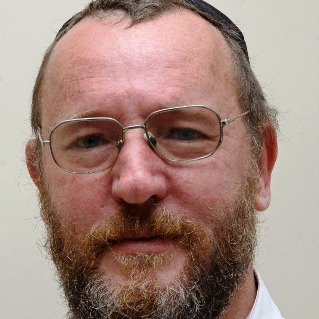
Lifestyle/Community

‘Jews of Limpopo’ interwoven in broader SA fabric
DAVID SAKS
Another reason was that, being of a gullible disposition, I pretty much accepted the Christian National “Verdomde Engelse” version of South African history, in which pious Afrikaners were continually being done down by perfidious, arrogant Rooinekke.
As a result, from an early age I hero-worshiped the gallant Boere who gave the mighty British Empire such a run for their money in the 1899-1902 Anglo-Boer War (not to mention a bloody nose in the previous conflict, in 1880-1).
Frustratingly, with rare exceptions the Brits always seemed to come out on top in military conflicts (the wretched French invariably seemed to come off second best against them), but in the intrepid Boere of the veld, they undoubtedly met their match, and only prevailed in the end through sheer weight of numbers.
In due course, I learned that a number of Jews fought on the side of the two Republics. Not surprisingly, this quickly became an obsession, resulting in a number of articles and eventually a book on the subject.
For me, the famed achievements of big-time captains of industry like Barney Barnato and Alfred Beit, or even the prominence of Jewish activists in the annals of the anti-apartheid struggle pale in comparison with those 300 or so Yidden who rode in the commandos and took part in the epic battles and sieges through which the might of the British Empire was kept at bay for so long.
One thing I always kept a wistful look out for, was a mention somewhere of one of my own forebears, David Taback (after whom I am named, as it happens). According to his daughter, my late grandmother, o”h, he had taken part in the war on the Boer side, because she “remembered him talking about it”.
His name never did come up, however, in the various archival lists that I hopefully trawled through. Eventually my slight hopes were dashed by my great-uncle Pinky, who was adamant that his father had never borne arms, although he may have supplied the commandos with milk from time to time.
Years later, and quite out of the blue, information has come to light fleshing out a little more, not only the experiences of Great-Grandpa “Oom Dawid” during the war years, but those of his father, Heimann Taback, and uncle, Louis, as well.
Like many other Jewish traders, they suffered severe losses through the commandeering, of not outright seizure, of their assets, and after the war the honourable Brits cynically denied their claims for compensation based on technical citizenship grounds.
Both Heimann and Louis also assisted the Boer cause by doing night duty in the Pietersburg Town Guard – not quite the same as storming the heights of Spioenkop, perhaps, but it was at least something. David’s experience was to have his shop, a general dealer’s business at Makapansgat between Pietersburg and Pietpotgietersrus, plundered by troops belonging to General Plumer’s column and to be dispatched to Pretoria in April 1901, presumably on suspicion of having supplied the Boer commandos.
In the end, he seems to have remained in Pretoria, where his father subsequently joined him. Both are buried in the Pretoria Jewish Cemetery. Heimann’s grave is easy to find, since it is located alongside the fenced off tomb of legendary entrepreneur Sammy Marks. Regrettably, the name on the stone is rendered as “Hyman” – a highly unfortunate Anglicisation of “Chaim” that was commonplace in those days but which has now mercifully fallen into disuse.
The above information came to light in Charlotte Wiener’s forthcoming new history of the Jews of Limpopo, which I was providentially engaged to edit. The author (the mother of well-known local author and radio reporter, Mandy) was a stalwart member of the Pietersburg Jewish Congregation during the years when it constituted the largest Jewish presence north of Pretoria.
There were also functioning Jewish communities in Messina, Potgietersrus and Louis Trichardt, as well as smaller settlements like Gravelotte, Marble Hall and Tzaneen – all places few Jews today will ever have occasion to visit, let alone settle in, and which in addition no longer even bear their original names.
Like nearly all country Jewish centres, these ceased functioning many years ago, and only a small cemetery in each centre testifies to there ever having been a Jewish presence. Pietersburg hung on longer than most country communities before finally closed its doors in the early part of this century.
In all, today only a few dozen Jews remain in Limpopo. Charlotte Wiener’s book is a fitting memorial to the Jews of bygone times who were among the pioneers of the various towns, villages and industries of the province, as well as being a genealogical treasure trove for those wanting to find out more about their South African forebears that vague familial traditions can supply.
Hopefully, it will in due course be available online, thereby supplementing the impressive work already being conducted in this field by the SA Friends of Beth Hatefutsoth.





Carl Muller
May 28, 2015 at 6:39 am
‘Very interesting to read. My grandfather worked for Benjamin Goldburg in Kimberley for 6 years before the boer war. After the war he went on working for him for another 50 years or so.
I wish I got all those old stories to pen it. It is lost and forgotten. ‘
Malcolm Chesno
May 28, 2015 at 9:41 am
‘My maternal great-grandfather,Henry Schwartz A\”H, a Medical Orderly, fought on the side of the British during two campaigns, was wounded in the second and succumbed to gangrene in the end.
He and his family lived in Lichtenburg.’
abu mamzer
May 28, 2015 at 4:12 pm
‘once a soutie,always a soutie.
Menachem Begin had the right approach to redneck arrogance
I am proud to say that my grand-uncle spied for the Boers during Die Engelse Oorlog.When they lost ,in fear of a treason charge he fled to the USA where I have long lost cousins.’